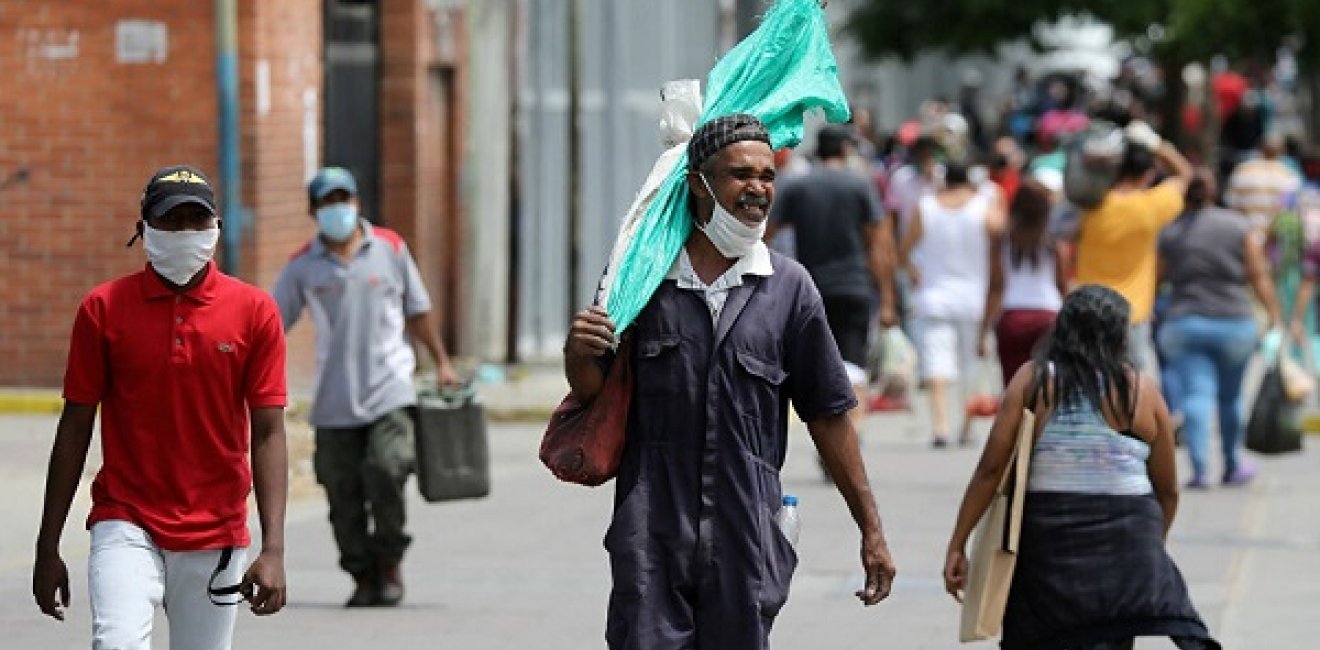
A blog of the Latin America Program
Survival: Venezuela and the Coronavirus
“Venezuela is a country that lives from people’s own efforts,
not those of the state.”-Michael Penfold
COVID-19 poses a variety of novel and daunting challenges for Latin Americans and their governments, most of them expensive. That is why the latest coronavirus economic fallout is particularly worrisome: an expected slowdown in remittances.
As countries worldwide impose quarantines to “flatten the curve” and avoid a devastating crush of critically ill patients overwhelming their hospitals, the labor market impacts are severe. The rise in global unemployment could cost $3.4 trillion in lost wages, pushing 35 million people into poverty. For wealthy countries, unemployment insurance and other social programs could help ease the sting. But the impacts will cross borders. Many of the countries shutting down economic activity, such as Spain and Italy, are important sources of remittances to Latin America.
In the United States, the largest source of remittances to Latin America, a recession is well underway. Some forecasts predict an unprecedented 24 percent decline in GDP in the second quarter, and the Fed has warned unemployment might reach 30 percent. This crisis will particularly impact tens of millions of undocumented Latin Americans in the United States, who collectively send billions of dollars home every year.
Latin America and the Coronavirus Fallout
COVID-19 is also imposing direct, deep and long-lasting economic impacts on Latin America’s already shaky economies. These include a disruption in supply chains, a sharp decline in commodity prices and a devastated tourism industry. The situation is acute for oil exporters, like Argentina, Brazil, Colombia, Ecuador, Mexico and Venezuela, as the virus and Saudi-Russia oil war have led to rapidly declining oil prices. Taken together, these economic shocks are expected to cause a regionwide GDP contraction of 1.8 percent this year, increasing the number of people living in poverty by 35 million, to a staggering 220 million.
Even before this crisis, remittances were a critical economic salve in this region. Last year, Latin America received $100 billion in remittances, or two percent of GDP. In some countries, these transfers were the largest source of foreign currency income, and a lifeline to sustain consumption and keep millions out of poverty. In Latin America, dependence on remittances is typically associated with Central America. But thanks to a prolonged political crisis and economic collapse, Venezuela has also become increasingly dependent on remittances from its exploding diaspora.
2.3 million households
Long before COVID-19, Venezuelans were facing a deep economic and humanitarian crisis. Since 2013, GDP has contracted by over 65 percent, with poverty afflicting over 80 percent of the population and medical infrastructure long ago collapsed. Today, Venezuela has only 300 virus testing kits for a population of 30 million.
Nearly five million Venezuelans have fled the country, and as many as 2.3 million households in Venezuela now depend on the generosity of these migrants, whose transfers home represent the country’s second-largest source of earnings after oil, and account for five percent of GDP. “Venezuela is a country that lives from its people’s own efforts, not those of the state,” Michael Penfold, a Venezuelan scholar at the Wilson Center, said.
The actual size of remittances to Venezuela is unknown, as the payments do not enter the country’s official financial system, despite efforts by Nicolás Maduro to control the funds. But the cash flow is giant, and it is now in jeopardy. As a result of the coronavirus, many Venezuelans abroad will soon be out of work, and their capacity to support family and friends left behind will be sharply constrained.
Just look at neighboring Colombia. Colombia is the main destination for Venezuelan migrants, hosting at least 1.3 million migrants. As a result, Colombia is a critical source of remittance income for Venezuelans. Now, that is changing. Among measures taken to control COVID-19, Colombia has closed its borders. That will decrease the number of Venezuelans who travel to Colombia to work, even while Venezuelans already in Colombia see their incomes fall, limiting their ability to send money home.
“We are still not able to tell the effect the coronavirus will have in remittances sent by Venezuelans,” Asdrúbal Oliveros, director of Caracas-based Econanlítica, told us. “Migrants are linked to commercial and service sectors, both hit by the crisis. To what extent, we still don’t know.”
Author


Latin America Program
The Wilson Center’s prestigious Latin America Program provides non-partisan expertise to a broad community of decision makers in the United States and Latin America on critical policy issues facing the Hemisphere. The Program provides insightful and actionable research for policymakers, private sector leaders, journalists, and public intellectuals in the United States and Latin America. To bridge the gap between scholarship and policy action, it fosters new inquiry, sponsors high-level public and private meetings among multiple stakeholders, and explores policy options to improve outcomes for citizens throughout the Americas. Drawing on the Wilson Center’s strength as the nation’s key non-partisan policy forum, the Program serves as a trusted source of analysis and a vital point of contact between the worlds of scholarship and action. Read more


Argentina Project
The Argentina Project is the premier institution for policy-relevant research on politics and economics in Argentina. Read more

Explore More in Weekly Asado
Browse Weekly Asado
Dengue Haunts South America’s Summers

Lessons from Costa Rica’s Economic Transformation

Women and Latin America’s Digital Revolution

